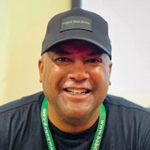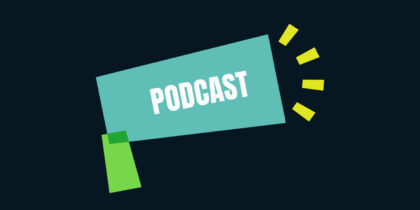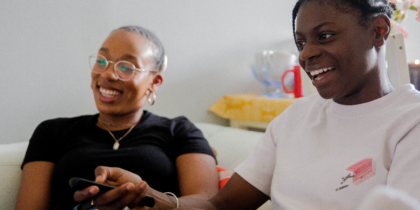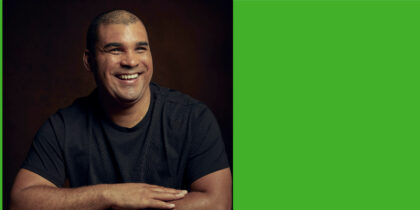This year I had the privilege of speaking at the BABCP Annual Conference and the launch of the Black Mental Health Manifesto. These events provided an invaluable platform to discuss the critical issue of mental health and suicide prevention within the Black community, an issue that has long been overlooked and underserved.
Personal Journey
In 2018, I hit rock bottom, and I found myself in a mental health crisis. The tipping point came with my first suicide attempt. I remember feeling completely isolated, as if I were the only person in the world going through this. It was a dark and terrifying place, and I knew I couldn’t navigate these turbulent waters alone anymore. Despite my initial reservations, I decided to seek help.
Throughout my last three years of focused recovery I learned a lot, not just about my own mental health struggles but also about the broader world of mental health and suicidality. I also recognised a lack of minority ethnic voices and participation in events and webinars on these subjects, which often made me feel alienated and alone. So, it was time to use my voice and vast commercial skills in business communications to help bring about change.
I launched Project Soul Stride in August 2023 which aims to ‘spotlight’ the Black experience of suicidality within the UK, an area that has been relatively overlooked and underserved. It has opened my eyes to mental health initiatives and services that exist today but perhaps are not addressing the needs of Black people who experience mental health problems in England.
The project has developed into an independent review of the Black mental health and suicide prevention field. Still only in its first year, I plan to use the findings from the 165+ interviews with key stakeholders and influencers to provide valuable insights into mental health services and help to address critical gaps that exist.
The stigma around mental health in our community is real. It’s like a wall that keeps us from reaching out for help when we need it the most. And this wall is built on years of cultural expectations, historical trauma, and systemic barriers that tell us that admitting to mental health struggles is a sign of weakness.
One thing has been crystal clear: our community is in crisis when it comes to mental health, and we need to start talking about it now.
Suffering in silence
In 2023, there were 6,069 deaths by suicide registered in England and Wales, with men accounting for around three-quarters of these. This highlights the pervasive issue of male suicidality and the urgent need for targeted intervention.
The annual NHS Talking Therapies report for 2022/2023 further reveals stark disparities in treatment completion rates among different ethnic groups. Black ethnic groups were least likely to complete a course of talking therapies at just 3.8%, compared to 6.3% for Asian groups and a staggering 79.8% for white groups. These statistics raise a crucial question: where are Black people going for help?
Invisible struggles
Many people in the Black community dealing with suicidality become invisible due to social stigma and a lack of knowledge about where to seek help beyond their immediate circles of friends or local church. This invisibility exacerbates their challenges and hinders access to appropriate support.
Black people are more likely to experience mental health problems but less likely to seek help or receive the support they need. These aren’t just statistics — they’re a cry for help that’s going unanswered.
Existing mental health resources often fail to address the unique needs of Black people. This is compounded by significant gaps in the research, and systemic barriers, such as stigma and mistrust in health care systems.
Another significant barrier to effective suicide prevention is the lack of cohesion between the NHS, public health, and the third sector. This fragmentation hinders the provision of comprehensive care, especially for marginalised communities.
Bridging the gaps
Grassroots projects like Project Soul Stride present an opportunity to bridge these gaps. By fostering collaboration and leveraging community-based solutions, we can create more inclusive and responsive support systems for the Black community. These efforts must be supported by policies that prioritise mental health equity and actively work to dismantle systemic barriers.
A call for action
The path to addressing mental health disparities in the Black community is steep, but it’s one we must walk together. By dismantling cultural stigma, improving access to culturally competent care, and leveraging the power of community-based support, we can begin to bridge the gaps that have left so many without the help they need.
We cannot let the voices of our community remain silent or their pain invisible. It’s on us – every single one of us – to step up, advocate for change, and ensure that Black men, and all members of our community, have the support they deserve. Whether through pushing for better policies, backing grassroots efforts, or simply being a listening ear, our collective action can break the silence and create a future where no one has to face their mental health challenges alone.









